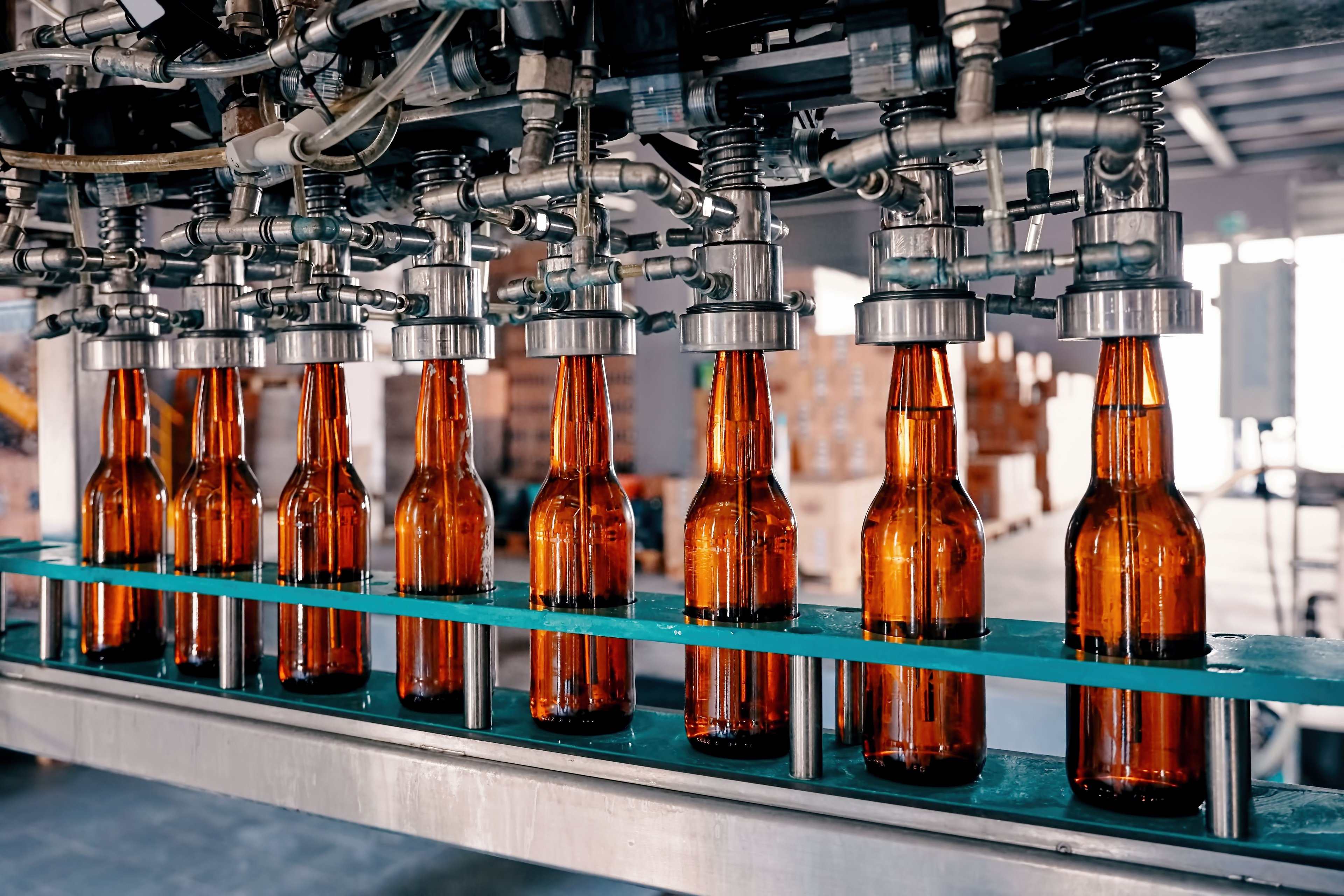In the highly competitive craft beer industry, CEOs and business leaders must have talent and passion to grow their company and handle pressure. One of the most influential people in the craft beer world is Jim Koch, co-founder and current chairman of the board of the Boston Beer Company (SAM +1.29%). Koch has a large of influence over the publicly owned company, but will this influence help Boston Beer compete against craft brewers like Craft Brew Alliance (BREW +0.00%)?
The craft brewing hero
Koch has had a tremendous impact on the craft beer movement. He graduated Harvard with degrees in business and law and was working as a corporate consultant when he realized the most successful CEOs were the ones who followed their passion. In 1984, he took his father's beer recipe and brewed the first Samuel Adams Boston Lager.

Source: Boston Beer Company.
While Koch isn't Boston Beer's current CEO, he owns 30% of the company and is so influential that he appears under two areas in the risk factors section of the company's 10-K. First, Koch holds 100% of the company's Class B common stock. This means that the election of most of Boston Beer's directors and other matters requiring stockholder approval are decided by Koch. According to the company, "[This] makes most material transactions difficult or impossible to accomplish without the support of Mr. Koch."
Second, Koch's role as founder, leader, and brewer has a large impact on Boston Beer's current branding. By having him in the spotlight, the company has credibility behind its message of tradition brewing processes, heritage, and quality. If his public image deteriorates or he pulls away from the company, Boston Beer's brand could suffer.
Koch's large stake in the company gives him a lot of control, but it also gives him incentive to see it flourish for investors. Boston Beer has made it clear that the company values long term growth even if it comes at the expense of short term earnings. The company increased advertising, promotion, and selling expenses by $38.6 million during 2013 and expect to invest between $5 and $7 million in the smaller Alchemy and Science brands in 2014. Boston Beer admits that sales are not likely to cover the investment in Alchemy and Science for 2014 but management believes it will build a strong brand that will deliver down the road.
This type of long term thinking is the advantage of having leaders with a large stake in the company.
Stakeholders in the alliance
While Craft Brew Alliance doesn't give as much control to one person, there are two major shareholders that combine to have 47.1% of the company's equity.
First, the Widmer Brothers' family owns 15.1%, or 2.9 million shares, of CBA's common stock. Kurt R. Widmer and Robert P. Widmer are integral in the brand's family message. Kurt is CBA's chairman of the board and Robert is vice president of corporate quality assurance and industry relations. Having the brothers in these influential positions has appeal to some drinkers and, like Koch, relies on the Widmer brothers' positive public image. If the brothers were to step down from the company, it could hurt CBA's image.
The other major shareholder is Anheuser-Busch (BUD +0.66%) which owns 32% of CBA's outstanding common stock. After an exchange agreement, Busch received shares of common stock, cash, and several rights in exchange for the company's preferred stock in CBA. Busch can appoint two members to the board of directors and keeps CBA from making certain management decisions without Busch's consent. This type of relationship could create more friction in CBA because Busch has its own interests to look after. The overall beer industry sales declined roughly 1.8% in 2013 while craft beer saw double digit growth. Busch's top brands like Bud Light and Budweiser each declined in market share by about 0.2% during this period, so investing in a craft brewing company could help the company as the market continues to grow.
The high growth in the craft brewing industry has had positive and negative effects on CBA's business. During the third quarter of 2013, the company saw record high shipments which placed a large burden on the its growing shipping and warehousing operations. This caused an inflated cost structure and led to gross margin falling by about 0.5 percentage points. As the company focuses on improving capacity and efficiency, gross margin should increase in the long run.
The power is positive
Jim Koch and the Widmer Brothers own a large percentage of their respective companies, which is good for other investors. They are more likely to work toward consistent long-term growth instead of cutting corners for short-term earnings reports. Koch has spent the last 30 years building the Samuel Adams and Boston Beer brand and I don't expect him to slow down his support of the company anytime soon. So while Boston Beer has given a lot of power to one person, it's this person who will use it in the best interest of the company and its shareholders. With Koch's help, Boston Beer could be a great stock to own into retirement.







